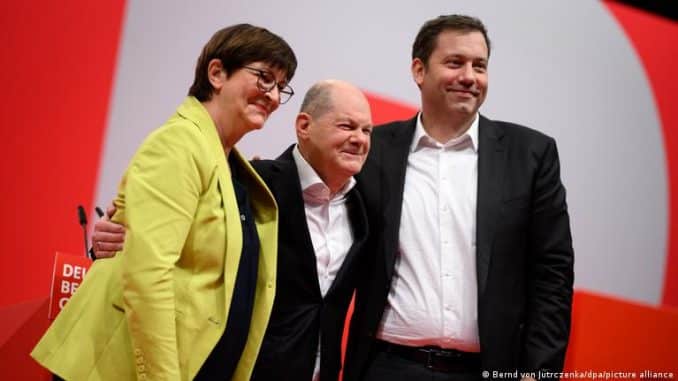
The mood was grim when 600 delegates from Germany’s center-left Social Democrats (SPD) headed to Berlin for their national party conference last weekend. Although the SPD won over 26% in the previous general election in 2021 and has since led the federal government, new polls suggest that if national elections were held now, the party would receive just 14% of the vote.
Four out of five eligible voters say they are dissatisfied specifically with the work of Chancellor Olaf Scholz. That is an all-time low for a German head of government.
“The house is burning, and people are losing faith in us,” Philipp Türmer, who leads Jusos, the SPD’s youth wing, told delegates.
Between cutting and borrowing
Crisis after crisis has hit Germany since the SPD took over government two years ago, with the support of the Greens and business-first Free Democrats (FDP). The latest one: a decision by the Constitutional Court ruling the government’s budget partially unconstitutional. In 2024, that leaves a shortfall of €17 billion ($18.3 billion), according to a government estimate.
There is internal disagreement about how to plug that hole. The SPD and Greens want to declare a national emergency, allowing them to suspend constitutional debt rules and borrow more money. The FDP is against that.
Finding a solution is a “very difficult task,” Scholz told party conference delegates. “Especially when you can’t just do it the way you think is right, but also need the agreement of others.”
He insisted, however, that the governing coalition would find a solution, one that would not lead to the “dismantling” of the social welfare state that the FDP has been pushing for.
Courtesy of DW